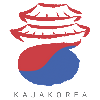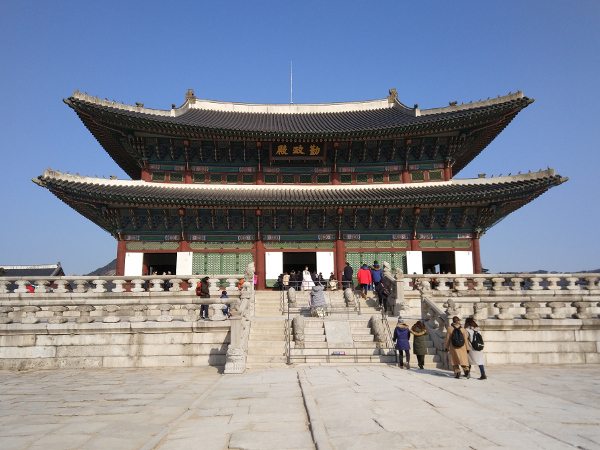Korean Lessons ᚛ Level 1 - My First Steps in Korean (Lessons 1 to 30) ᚛ Lesson 15 - Vowel Contractions in the Present Tense
Vowel Contractions in the Present Tense
Korean is a language that tends to simplify sentences or certain words in order to make expressions more fluid, which can happen when multiple vowel sounds follow each other.
When conjugating certain verbs in the present tense in Korean and when adding 아(요) or 어(요) after a stem that ends in a vowel, it is necessary to contract these vowels to simplify the verb structure.
The stem ends in ㅏ
ㅏ + 아 = ㅏ
가다 (= to go) has a stem 가 which ends in ㅏ. In theory, its casual present form should be 가아. However, ㅏ and 아 are contracted to ㅏ. So, 가다 is conjugated as 가 in the casual style and 가요 in the polite style.
The stem ends in ㅗ
ㅗ + 아 = ㅘ
보다 (= see) has a stem 보 which ends in ㅗ. In theory, its casual present form should be 보아. However, ㅗ and 아 are contracted to ㅘ. This means that 보다 is conjugated as 봐 in the casual style and 봐요 in the polite style.
Note: the contraction is not obligatory but extremely common, especially when speaking.
The stem ends in ㅓ
ㅓ + 어 = ㅓ
서다 (= to stop) has a stem 서 which ends in ㅓ. In theory, its casual present form should be 서어. However, ㅓ and 어 are contracted to ㅓ. This means that 서다 is conjugated as 서 in the casual style and 서요 in the polite style.
The stem ends in ㅜ
ㅜ + 어 = ㅝ
주다 (= to give) has a stem 주 which ends in ㅜ. In theory, its casual present form should be 주어. However, ㅜ and 어 are contracted to ㅝ. This means that 주다 is conjugated as 줘 in the casual style and 줘요 in the polite style.
Note: the contraction is not obligatory but extremely common, especially when speaking.
The stem ends in ㅣ
ㅣ + 어 = ㅕ
치다 (= to hit) has the stem 치 which ends in ㅣ. In theory, its casual present form should be 치어. However, ㅣ and 어 are contracted to ㅕ. This means that 치다 is conjugated as 쳐 in the casual style and 쳐요 in the polite style.
The stem ends in ㅐ
Learn more
The stem ends in ㅔ
Learn more
The stem ends in ㅚ
Learn more
Summary table of structure
Learn more
Exercises
Learn more
This printable eBook teaches you Korean writing and includes more than 1,000 Korean vocabulary words divided into 40 categories. Each word comes with audio pronunciation recorded by native Korean speakers (no AI)!
On top of that, you’ll also get access to an online vocabulary learning tool based on the scientifically proven Leitner spaced repetition method.
Learn more

